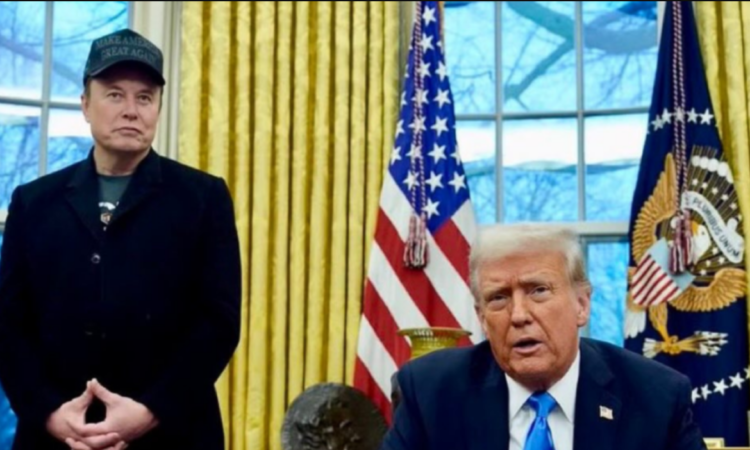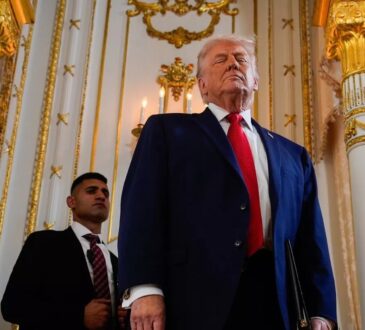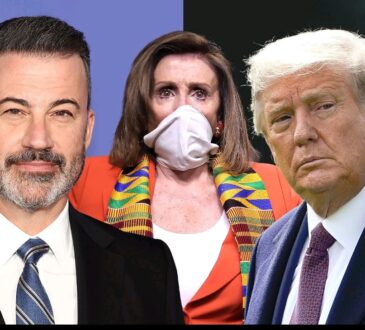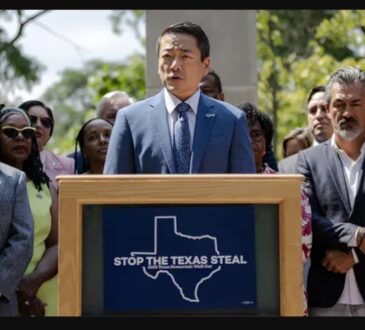Real Reasons Behind Elon Musk’s Dramatic Shift from Calling Donald Trump A “Bulls—” to Becoming His “Lapdog” REVEALED

Elon Musk, the billionaire tech mogul behind Tesla, SpaceX, and X (formerly Twitter), has undergone one of the most dramatic political transformations in recent years. Once a vocal critic of Donald Trump, Musk has now become one of the former president’s most prominent supporters, even joining him at White House press conferences and taking on a key role in Trump’s administration as head of the Department of Government Efficiency (DOGE). But what caused this sudden shift? And what does Musk stand to gain from aligning himself with Trump?
In 2016, Musk was firmly in the Democratic camp. He supported Barack Obama and later Hillary Clinton, openly criticizing Trump during the presidential campaign. In Walter Isaacson’s biography of Musk, the author reveals that Musk once called Trump “nuts” and expressed concerns that the real estate mogul didn’t “reflect well on the United States.” Musk, like many in the tech industry, leaned liberal on social issues but had a libertarian streak when it came to regulations and political correctness.
Even after Trump’s victory, Musk remained skeptical. He hoped Trump would govern as a more moderate, independent figure, leaving behind the far-right rhetoric of his campaign. Musk’s first meeting with Trump in December 2016 did little to change his opinion. While Trump expressed interest in reviving NASA and joked about owning a Tesla he never drove, Musk reportedly told Isaacson, “He seems kind of nuts, but he may turn out okay.” Despite Trump comparing Musk to legendary inventors like Thomas Edison, the SpaceX founder remained unimpressed, describing Trump as a “con-man performance” akin to his own father’s behavior.
So, what changed? Why did Musk go from calling Trump a “disruptive” figure to becoming one of his biggest supporters? The answer lies in a combination of political strategy and business interests.
After Trump’s election, Tesla’s market value surged to $50 billion, and Musk began to see the benefits of aligning with the Republican administration. Trump’s policies, particularly those related to tariffs, electric vehicle (EV) credits, and federal contracts, presented significant opportunities for Musk’s ventures. For example, tariffs on Chinese imports could help Tesla eliminate competitors, while EV credits and federal support could boost Tesla’s growth. Additionally, Musk’s other projects, like Starlink and SpaceX, rely heavily on government contracts, making a good relationship with the administration crucial.
Musk’s appointment as head of DOGE further solidified his ties to Trump. In this role, Musk has been instrumental in promoting Trump’s agenda, including efforts to streamline government operations and cut wasteful spending. Notably, Musk’s influence has also extended to the cryptocurrency market, with the value of Dogecoin skyrocketing following Trump’s victory. This has led to speculation that Musk’s support for Trump is partly driven by a desire to advance his own financial interests.
For Musk, the alliance with Trump is a calculated move. By aligning himself with the former president, Musk gains access to political influence, favorable policies, and federal contracts that can propel his businesses forward. Trump, in turn, benefits from Musk’s tech expertise and public image as a visionary entrepreneur. The relationship is mutually beneficial, but it has raised eyebrows among critics who see it as a marriage of convenience rather than a genuine partnership.
Musk has denied receiving any direct political favors from Trump, but experts argue that the benefits are clear. From tariffs that weaken Tesla’s competitors to federal support for SpaceX and Starlink, Musk’s businesses stand to gain significantly from Trump’s policies. Moreover, Musk’s role in promoting Dogecoin and other cryptocurrencies aligns with Trump’s broader economic agenda, further cementing their alliance.
Musk’s political shift has not gone unnoticed. Critics have accused him of prioritizing his business interests over his principles, while supporters argue that he is simply adapting to the political landscape to advance his goals. The partnership has also sparked debate about the role of tech billionaires in politics and the extent to which they can influence government policy for their own benefit.
As the 2024 election approaches, Musk’s relationship with Trump will likely remain a topic of intense scrutiny. Whether this alliance is a strategic masterstroke or a Faustian bargain, one thing is clear: Elon Musk’s political journey is far from over, and his influence on both the tech industry and the political arena will continue to grow.
What do you think? Is Elon Musk’s support for Donald Trump a smart business move, or does it undermine his credibility as a visionary leader? Share your thoughts in the comments below.




